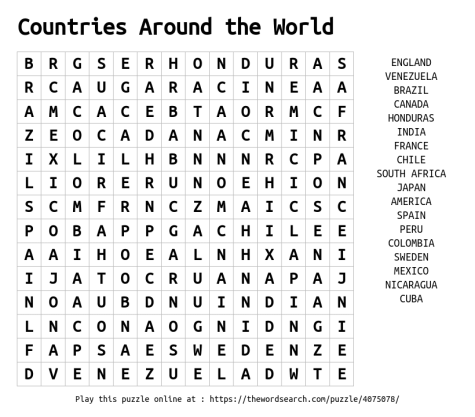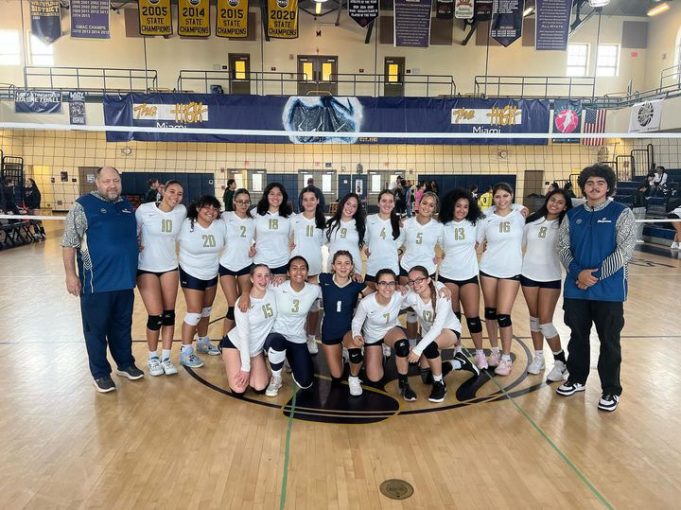Coming To America From Another Country

Flags of various countries worldwide Source: https://wallpapercave.com/country-flags-wallpapers
September 27, 2022
The city of Miami’s population consists of diversity and people from all over the world; thus, Miami High’s student body has a variety of stories to be told. With an enrollment of 2,845, Miami Senior High has numerous students who were born in places such as Cuba, Honduras, Dominican Republic, Nicaragua, Colombia, and numerous other countries.
The Decision to Move – Cuba
Like any big change, moving to a new country can be a big adjustment as you must adapt to a new way of life and surroundings. Kelim Castellanos, a junior who moved here from Matanzas, Cuba on November 11th, 2012, stated, “My mother and I moved to America for a better life.” Kelim says that in Cuba while certain things may be in your possession, nothing you have truly belongs to you and his home country is more “communistic rather than socialistic.”
Cuba is located at the east of the Yucatán Peninsula (Mexico), south of both the American state of Florida and the Bahamas. People there speak Spanish while America, on the other hand, has people who speak a variety of different languages, but English is most commonly used. In addition, popular food chains, stores, and companies such as McDonalds or Walmart that exist here in the U.S. are not a thing in Cuba.
From Jamaica where the schools are stricter
Tara Wright, who is also a junior here at Miami High, moved here from Jamaica 6 years ago when she was about 10 years old. She stated, “My family moved here when my father received a job opportunity. He also thought my brother and I would have a better life here and, overall, more opportunities with a better education system.”
Jamaica is in the West Indies, which is an archipelago of islands between southeast United States and northern South America. While in the U.S., people drive on the right side of the road, in Jamaica the side of the road you drive on can change depending on where you are. According to Tara, Jamaican parents and schools are stricter than they are here and would not tolerate most actions that are common amongst children and teens here in the U.S.
“Actions that are common in schools here such as skipping and vaping would get you in huge trouble and be considered intolerable in Jamaican schools,” says Tara. “In addition, what would be considered rich in Jamaica is only middle class in America.”
Leaving Europe, looking for economic opportunity and sunshine
Female sophomore R. Gomez, who moved here from Spain, stated, “I was born in Liverpool, England, but raised majority of my life in Spain. I arrived here about one year ago. My family decided to move to America because the situation in Spain economically wasn’t the best. We decided to come here and try something new since we’ve already lived in England in the past.”
R. Gomez says that America has entirely different cultures, food, and vibes from Spain and England. While she considers America to be calmer and more sophisticated, she feels that Spain was easier to adjust to because life here goes much faster making it more difficult to mentally process everything.
“England is snowy and cold while here, specifically in Miami, it’s always hot,” she said. “The difference in environments also causes a difference in the attitudes of the people. In England, people tend to live more depressed lives, because of the frequent rain and lack of sunshine. The Miami weather allows people here to go out more often.”
From Honduras where things are not so advanced
“I am from Roatán which is part of the Bay Islands of Honduras,” stated Salana Hill, a junior here at Miami High. “I was born in La Ceiba, Honduras, but moved after I was born to Roatán. I moved to the US when I was 3 because my parents wanted a life here since my grandparents already had lived here. Honduras is not considered advanced like we are here in America. Some houses don’t have showers, AC, or an electric stove. You must wash your laundry by hand if you don’t own a washer or hang up your clothes on a wire to dry them.”
Feelings Towards Moving
The process of moving can be very emotional as you leave behind your old life, people you love, the environment you made numerous memories within and what you had come to know. In addition, you must adjust to your new life, home, and how things may work here differently from where you came from.
“When my family first moved here from Jamaica, we struggled with differences in prices of necessities,” stated Tara Wright. “In Jamaica, it’s common just to go down the street to a store where you can buy what you need for much cheaper than you can here. Language was also a slight issue for me because people would say stuff I didn’t understand.”
In addition, Tara misses her family dearly and lost touch with her friends in Jamaica. Despite these roadblocks in adjusting and what she was unfortunately having to leave behind, Tara says she wanted to move here. “People made it seem as though it was more fulfilling to live here and frequently spoke about ‘the American dream’,” she said. “While I enjoy living here, I don’t think America is what it was cracked up to be.”
It’s hard to be an immigrant in this country
Sophomore R. Gomez stated, “When my parents told me that we were going to move here, I was excited because I always wanted to live here in the United States and experience life here for myself rather than just hearing people talk about their experiences or looking at it through movies.”
As an immigrant to the country R. Gomez and her family struggled with money after arriving here with a visa that only lasted 3 months. During those 3 months her parents looked for a job and place to live.
“We had some difficulties, but we managed to get through them. Now we have a house, and my parents’ work. I want to point out that it’s hard to be an immigrant in this country because people abuse the fact that you don’t have papers so they can treat you differently from any other worker,” she said.
Honduras, still a beautiful place
Junior Katerin Castro-Padilla, whose family moved here from Honduras when she was one year old, stated, “Since I was so young when my family moved here, I don’t remember much about how we adjusted, but I’ve really enjoyed growing up here. I learned English at a young age and though they struggled with getting a job, I’m incredibly grateful for the opportunities my parents have provided for me by moving here.”
While she has enjoyed growing up here, Katerin misses everything about Honduras. “My family, the food, the places, and much more. I go to visit my family during the summer but it’s not the same and there are things I’d still like to do over there with my grandmother. Honduras may have some bad parts, but there are also beautiful places that anyone can enjoy.”
Missing Grandma’s Cuban food
Similarly, Kelim from Cuba misses his family, friends, going to school, playing with friends outside, walking around barefoot everywhere, eating his grandma’s delicious food, and going to the beach with family and friends. Kelim said that learning English after moving here from Cuba was a big challenge that some of his family still struggles with. He feels that communication is very important and is now striving to learn numerous languages other than Spanish and English. Learning all the laws and how society moves here was also a challenge and not everyone has the same views or way of life, so he had to adjust his actions to his new life in the U.S.






imogene johnson • Oct 4, 2022 at 9:47 am
Excellent article, well written. the information you provided is useful and very helpful for understanding different cultures. Understanding cultures will help us overcome and prevent racial and ethnic divisions Moreover, by immersing ourselves in other cultures beyond our own, we can learn about each other.
Good job!
Keep writing..
Eddye Gay • Oct 3, 2022 at 4:16 pm
This is an excellent article. I enjoyed reading the experiences of students from other countries and how they have transitioned in Miami and doing well. Students keep up the good work.